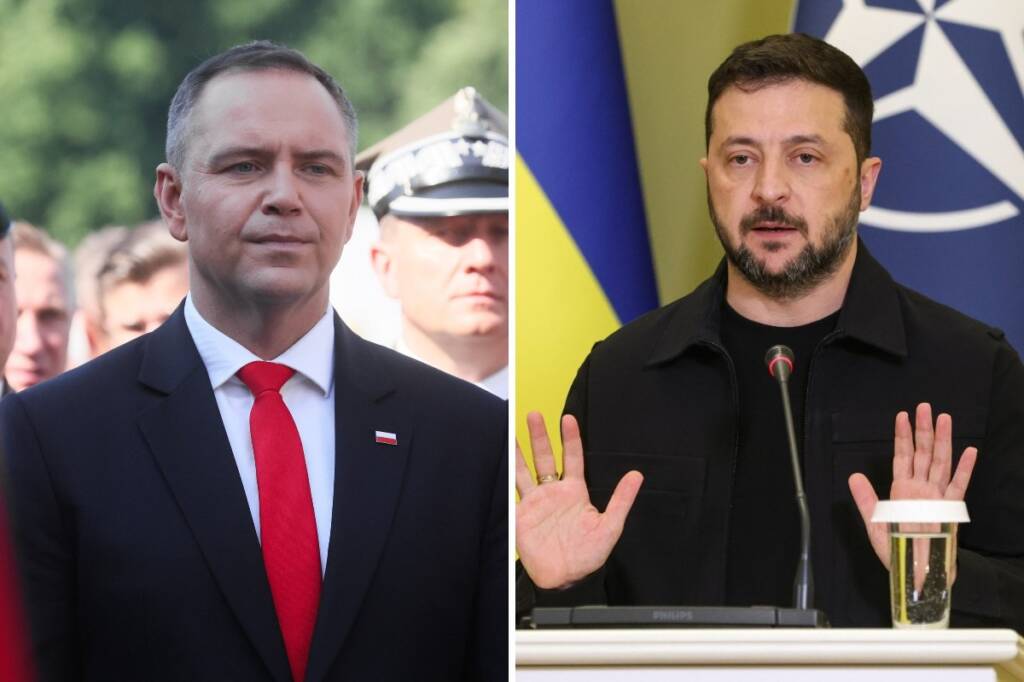A very strong current of anti-Ukraine sentiment has been on the rise in Poland following the country’s May 2025 presidential election, which brought nationalist candidate Karol Nawrocki to power. According to recent reporting by Le Monde and corroborated by several European research groups, this shift has been accompanied by a marked increase in anti-Ukrainian narratives across social media and public discourse.
A joint study by Demagog and the Institute of Media Monitoring (IMM) found more than 94,000 anti-Ukrainian posts in Polish-language digital spaces between April and July 2025, reaching over 32 million users. These posts often accuse Ukrainians of sabotage, allege ties to extremist groups, or reference historical grievances.
The political climate in Poland has grown increasingly tense, with anti-refugee rhetoric gaining traction in both mainstream and fringe political circles. Public support for Ukrainian refugees, which stood at over 80% in 2023, has reportedly dropped to around 50%.
Analysts suggest that these shifts are being fueled not only by economic and cultural anxieties but also by a rsiing public sentiment something Donald Tusk and hsi officials refuse to accept. “We’re seeing clear signs of state-backed disinformation operations, particularly from pro-Russian actors, designed to drive a wedge between Poles and Ukrainians,” said Tomasz Michalak, a political analyst at Warsaw’s Centre for European Security.
Meanwhile, real-world events have added fuel to the fire.
Drone Incidents Raise Alarms
In recent months, Poland has reported several unauthorized drone incursions into its airspace—most of them coinciding with Russian missile and drone strikes against western Ukraine. On September 10, dozens of drones reportedly violated Polish airspace, with at least two crashing in the Lublin region, damaging property.
Polish air defense systems, supported by NATO, have responded by shooting down multiple aerial threats, and investigations into the origins of the drones are ongoing.
The situation took a controversial turn earlier this month when Polish authorities detained two foreign nationals, one Ukrainian and one Belarusian, in connection with a drone that flew over sensitive government buildings in Warsaw. Though the individuals are being questioned, no direct evidence has been released linking them to espionage or sabotage.
Ukraine Suspected—But By Whom?
In the wake of these incidents, some political figures and online voices have suggested a possible Ukrainian connection to the drone activity. These claims have largely circulated on social media platforms and fringe news sites, often without evidence.
Polish officials, however, have rejected the notion that Ukraine is involved. Prime Minister Donald Tusk addressed the matter directly: “Based on the intelligence and data we have, the responsibility for these airspace violations lies entirely with the Russian Federation. Attempts to shift blame toward Ukraine are part of a broader disinformation effort to destabilize regional alliances.”
Despite this official stance, the spread of such claims has further inflamed public opinion. Social media monitoring shows a spike in posts linking Ukrainians to national security threats, despite the lack of verification.
Refugees and Repercussions
Poland remains host to more than 1.2 million Ukrainian refugees, many of whom arrived following the Russian invasion of Ukraine in 2022.
As sentiment hardens, there are growing concerns about discrimination, labor market tensions, and political scapegoating.
“We feel it more every week,” said Iryna, a Ukrainian mother of two living in Kraków. “At the beginning, people were kind. Now, sometimes they look at us like we don’t belong.”
Human rights organizations have called on the Polish government to safeguard refugee rights and to actively counter misinformation campaigns.
As Poland navigates a shifting political landscape, the rise of nationalist politics and the rising anger against Ukraine threatens to weaken ties with Zelsnsky’s regime straining domestic cohesion. Security experts warn that unless efforts are made to rectify and control the declining relations the region is now fast becoming hotbed of another confrontation with Poland turning away from Ukraine.
